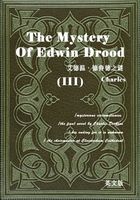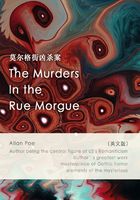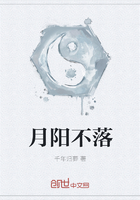Thales's Well The world in a drop of water
In the summer of 1999, Cornell University published research purporting to show that love really is a drug. To be precise, it is a cocktail of dopamine, phenylethylamine and oxytocin in the bloodstream that produces the sensation we call infatuation. Love, the researchers argued, was in fact a chemically induced form of insanity. This condition lasts until the body builds up an immunity to the substances involved, which is usually just long enough to meet, mate and raise a child to early infancy. The theory sounds dubious, if not downright offensive. Love, we feel, is the most important thing that can happen to a person and should be placed on a pedestal, not in a syringe with which to inject the loveless. Cornell University's conclusions were based on the principle of 'reductionism': the thought that things can be understood by boiling them down to their component parts, or that complex, large-scale processes can be understood in terms of simpler ones. The research may be overturned sooner or later, but if it survives it will not be the first time our illusions have been dispelled by reductionist thinking.
Another example of reductionism is the belief that tonsillitis is caused by a certain kind of bacterium that has invaded the body, and that the best way to treat the illness is to tackle the germ directly by administering antibiotics. An alternative tactic – though not one advised by many Western doctors – would be to regard the illness as a malady of the whole body, caused, perhaps, by an 'imbalance' in the individual's entire system. Such a 'holistic' approach will suggest various treatments that may or may not be effective. In very general cases of poor health, a holistic view of the situation may be the most sensible one, or at least an important accompaniment to the reductive approach. Mild heart conditions, for instance, are sometimes treated not with drugs, but by the patient giving up smoking, cutting down their cholesterol intake and taking regular exercise. Even this advice, however, is the product of reductionist investigations into body chemistry and physiology.
Despite the scientific advances it has given us, reductionism is something of a dirty word today. Some of us think that in attempting to understand the universe, we sully it. What it took God divine grace to create, we inspect through intrusive microscopes and disseminate in barbarous human tongues. Armed with the new genetic sciences, a botanist can claim to have decoded the essence of a rose in the plant's genome. He or she would be given short shrift by poets such as William Blake, who famously complained that science 'murders to dissect', or the nineteenth-century aesthete Walter Pater, who wrote that a scientist's garden would have 'written labels fluttering on the stalks for blooms'. Even if we do not all recoil so violently from reductionism, many of us feel instinctively that it must deal in crude simplifications, or works to 'bring nature down to our level'. But our level is the only one we have, and there need not be anything wrong with it. The American physicist Richard Feynman argued that we should not be unduly modest about our faculties, remarking that, as a scientist, he could not only appreciate the aesthetic beauty of a flower, but also marvel at its intricate biochemical structures. At the same time, however, we have suffered the follies of Freud and Marx, who reduced too much of human experience to sex and economics respectively. Reduction is a tool that can be misused, but we must remember that it gave us space travel and the Human Genome Project.
The first reductionist philosopher – and also the first Western philosopher of any description – was Thales, a Greek born around 636 BC at Miletus in Asia Minor (now Turkey). Thales was one of the Seven Sages, the men of the sixth and seventh centuries BC who were renowned for their wisdom as rulers, lawgivers and counsellors. Their maxims were inscribed on the walls of the temple of Apollo at Delphi. Across the ancient world, mosaics were reproduced depicting their aged, bearded heads alongside such phrases as 'Know thyself' and 'Nothing in excess'. Thales travelled as far as Egypt and Babylonia to gather knowledge from other cultures. When he returned home and offered his own contribution to knowledge, the Greeks hailed him as the founder of science, mathematics and philosophy. Part of his fame stemmed from a legend told one hundred and fifty years later by the historian Herodotus. Using the astronomy he had learned in the East (or, according to other authorities, by making a lucky guess), Thales successfully predicted that there would be an eclipse of the sun in 585 BC. On that day, the armies of Mede and Lydia were marching into battle against one another. They interpreted the eclipse as a warning from the gods and quickly broke off hostilities to sign a peace treaty. Modern astronomers have shown that the eclipse must have occurred on 28 May. This means that the aborted battle is the only event in the ancient world that we can date precisely.
Plato (428–347 BC) tells the story of how Thales was walking along studying the stars one evening when he fell down a well. A pretty servant girl heard the philosopher's cries and helped him out of the well, but not without quipping that Thales was a man 'who studies the stars yet cannot even see the ground at his feet'. This seems unfair, as Thales's head was not always in the clouds. There are several tales attesting to his practical skills. He urged a political union of the Greek city-states of Ionia as the only way to hold back the expansionist aims of their rival, Lydia. Though the authorities ignored him, his advice proved to be apposite over the centuries that followed. Aristotle (384-322 BC) relates that Thales was reproached for his poverty, which was taken to prove that philosophy is of no use to anyone. In response, Thales used his skills to predict that the following season's olive crop would be a bumper harvest. He then bought up all the olive presses in Miletus (presumably by taking out a loan) and made a fortune when the yield matched his expectations. Thales died at the age of seventy-eight of heat exhaustion while watching an athletics match. The inscription on his tomb read: 'Here in a narrow tomb great Thales lies; yet his renown for wisdom reached the skies.'
There is no evidence that Thales wrote any books, but he apparently said that he would be satisfied if those who passed on his ideas attributed them to him rather than to themselves. Given his belief that the universe was made out of water, most of us would be more than pleased to oblige. Water, Thales argued, was the fundamental substance of which all others were composed. Matter was condensed water and air was evaporated water. The entire earth, he maintained, was a disc floating on a giant lake, the waves and ripples of which caused earthquakes. According to Aristotle, Thales's first inkling of this came from observing that water was essential to all forms of life in the natural world. Thales's theory seems a reasonable stab at the truth when we consider that water comes in solid, liquid and vaporous forms. Though mistaken, the idea was the first scientific hypothesis ever recorded.
Thales was making a grand reduction. The properties of all the objects in the world, be they metals, mountains, gases or people, were reducible to just one set of properties – those of water. So if you ground things finely enough, dissected them thinly enough or examined them closely enough, you would not find iron or stone or flesh, but water. It might seem strange that anyone would want to explain one thing in terms of another rather than treating it on its own terms, but this is how reduction proceeds. If we desire to understand the world, then this means putting things in terms we can understand. Reducing something is like translating it into a more intelligible language. After reduction, a phenomenon is easier to handle and less mysterious because components are simpler to comprehend than a whole system.
However, if simplification were the only aim, many of our modern-day reductions would be failures. As far as we know, Thales did not go into great detail as to exactly how water forms the various phenomena of the natural world, but at least water is a substance with which we are all well acquainted. The mathematics of modern atomic theory, on the other hand, is comprehensible only to a small group of people with the proper training. While reduction renders things more intelligible, this does not necessarily mean more intelligible to everyone. Since the common understanding of the many is so frequently replaced by the better understanding of the few, reductionism is bound to arouse a measure of distrust. This is compounded by the fact that, in terms of explanations, simpler often means more brutely physical, so that to be a reductionist is often to be a materialist. Reductionists are also hampered by an unfortunate choice of terms. All that reduction truly 'reduces' is the complexity of an explanation. Everything else to be explained about the phenomenon is preserved. However, this is only as long as there is a real phenomenon to reduce. Reductionists are more than happy to jettison such things as souls and gods which they might not believe in. Though simpler explanations are deemed lower' because they are closer to the most basic facts we know, we could equally well call them 'higher' because they rise above irrelevant and obfuscating details to cut to the essential truth of things. The hierarchy of knowledge and understanding that reductionism yields could then be viewed as an ordinary pyramid rather than an inverted one.
Since reduction is about simplification, there is always the risk of oversimplification. It pays, therefore, to be careful about what exactly is being reduced and just what explanatory powers the reduction has. The question has to be asked whether in reducing something we have merely eliminated it from our description of the world. The taste of apricots, for example, could be reduced to the interplay of the molecules of the fruit with the receptors in our palate. But does this not ignore the sensation of what apricots actually taste like? After all, someone could know about the chemical constituents of apricots without ever having eaten one. Even so, elimination might not be all bad. Human understanding progresses by two means: gathering facts to discover new phenomena, and drawing these phenomena together under the simplifying influence of reductive explanations. Sometimes we find that as soon as the available evidence has been adequately reduced, new data appears that casts that reduction into doubt and demands that we look at the whole of the phenomenon once again.
It is paradoxical that in order to understand familiar natural processes, such as why water evaporates when boiled, we need to consult lower' levels of organization and unfamiliar entities such as protons and electrons. It would be strange to suggest that the 'higher' levels of organization we are used to dealing with – that of clouds, cups of coffee and human tears – are in fact illusory. Scientific reductionists sometimes come perilously close to asserting this when they say that we are 'nothing but mounds of atoms'. The key words here are 'nothing but'. This is correct if we mean it in the same sense that a novel is 'nothing but' a collection of ink marks on paper or a brain is 'nothing but' an agglomeration of neurones. If humans are simply mounds of atoms, then this says less about the dusty origin of humanity than it does about the amazing potential of otherwise harmless-looking atoms.
However, there is another way in which a reductionist might claim that only the most basic levels of description denote what is truly real. Nature seems to make most of her big decisions on the microscopic level. As the American philosopher Jerry Fodor (1935-) remarked, there is no science of Tuesdays. Science recognizes only four forces: gravity, electromagnetism and the strong and weak nuclear forces that hold atomic nuclei together. The weak nuclear force has been shown to be a form of the electromagnetic force, and it is hoped that before long all the forces will be discovered to be aspects of a single unifying force. According to hard-core scientific reductionists, everything that happens is because of these forces and nothing else (especially not ethereal concepts like human intentions). They operate upon macroscopic objects such as cars because they work upon the atoms of which these are composed. To explain every natural process in terms of the operation of the four forces is to suggest that the only adequate explanations are those that refer to microscopic events. We might, for instance, say that a spell of hot weather caused a drought which caused the crops to fail. A truly accurate explanation, however, would speak of the increased agitation of air molecules rather than in mere metaphors such as 'heat'. If someone asks me how I got to the party and I say that I drove there, I would not expect to be corrected on the grounds that, in actual fact, I depressed a pedal and refined petroleum combusted to generate propulsion. I would be even more confused if my interrogator immediately began talking about chemical reactions and carbon compounds. The more drastic the reduction, the greater the need to show how it ties in with our ordinary concepts – otherwise we may not believe that the reductionist is talking about the same things as the rest of us. Something in our ordinary experience, be it the action of driving to the party or the taste of apricots in the canapés, must be preserved in a reduction for it to count as an explanation of something. Otherwise we have merely listened to a stand-alone speech on an irrelevant topic rather than an answer to a question about my means of transport. On the other hand, the reductionist's explanation may be more welcome if I had suffered a breakdown on the way because I had filled my car with the wrong kind of petrol.
The four forces of nature may underpin everything from the movement of the clouds to the recipe for lasagne, but a physicist's understanding of those forces would not itself enable one to predict the weather like a meteorologist or make pasta like a top Italian chef. (Perhaps in the future there will exist robot chefs with a complete knowledge of the fundamental forces along with a superhuman ability to utilize that knowledge. It might be possible for such a creature to concoct the perfect dish through brute force of number-crunching, but this would seem an unnecessarily long-winded way to go about one of life's simple pleasures.) On the other hand, being able to cook well or give an accurate weather forecast are skills far removed from an ultimate understanding of the universe. For that task, reductionist thinking is clearly required. This does not mean that reductionism is only useful to explain the subatomic physics of life. You can usually understand something better by reducing it and looking at the level of explanation immediately below it. For example, you can cook a better lasagne if you understand the correct measures of flour and tomato sauce in its recipe. To understand flour, you would need in turn to understand the level below that – that is, the consistency of the various grains used in the production of flour, so that you only choose the finest durum wheat for your ingredients. One could go on down the levels of explanation until atoms and molecules are reached. By the time you have decided on the best quantity of hydrogen to use, however, you will most likely have died of starvation. Usually, it is the level immediately below a phenomenon that is most helpful in comprehending it rather than ever more basic and abstruse levels of description. The great thing about reductive explanations is that they allow you to work upwards again, like a ship's captain taking a trip to the engine room and returning to the bridge better informed about the capabilities of his vessel. You descend to more basic levels of description to zero in on what will make all the difference on higher levels.
Despite the practical uses of reductionism, its application in everyday life often comes in the form of cynicism. It is reductionist to say, for example, that though someone gives money to charity and devotes his free time to volunteer work, he is 'merely' serving his own interests. It is also reductionist to declare that although a company might instigate projects aimed at improving the environment and protecting its employees, it is ultimately concerned 'only' for its long-term profits. That said, it would be no less reductionist to claim that the company is acting solely out of Christian kindness. To qualify as reductionist, an explanation needs only to explain one thing in terms of another that is more basic, or many things in terms of a single other thing. Reductionism sounds quite innocent when put like this, but nothing that has so much explanatory power is ever going to be harmless.















